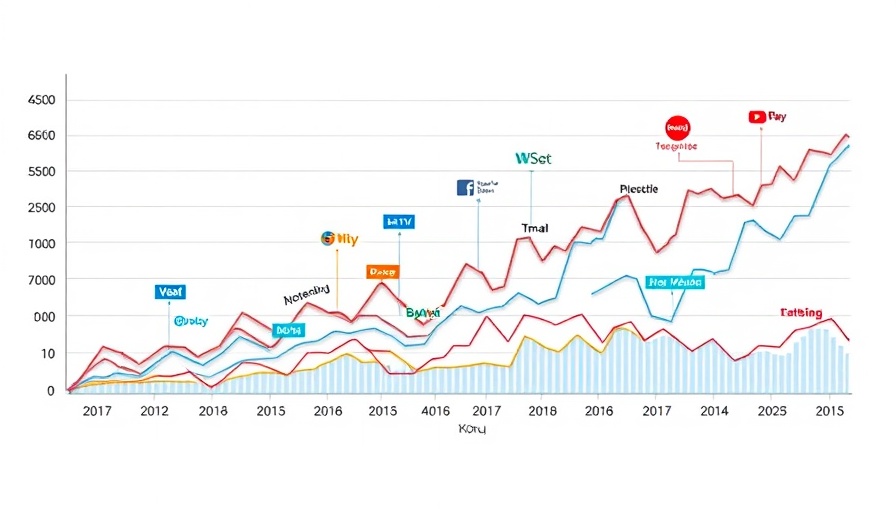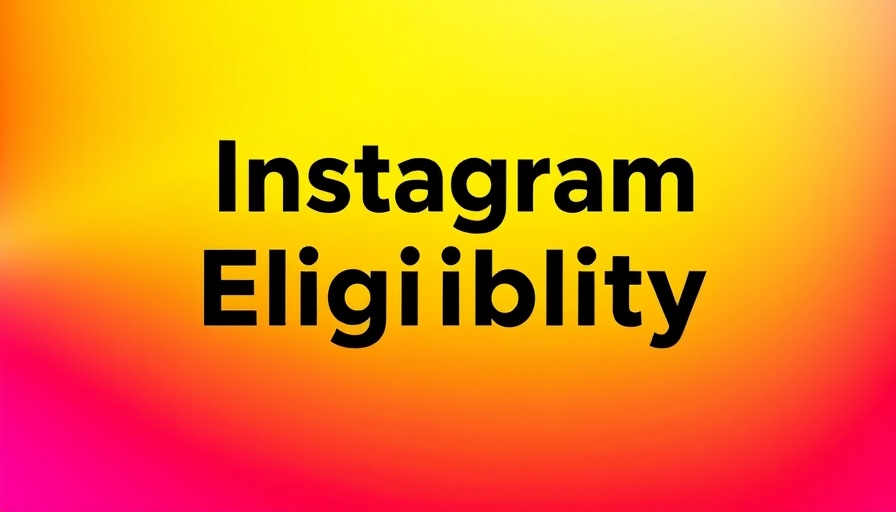
Social Media's Dominance in News Consumption
In an era dominated by rapid digital transformation, the latest findings from the Reuters Institute's "Digital News Report" highlight a significant shift in how Americans consume news. Social media platforms have now surged ahead as the primary source of news for adults in the United States, with 54% reporting they access news via these platforms. This marks an important trend, surpassing traditional sources such as television and news websites, which stand at 50% and 48% respectively.
The Role of Influencers in News Dissemination
Perhaps most striking is the burgeoning role of influencers in shaping public discourse. With a growing number of users turning to platforms like Instagram and TikTok for their news fix, influencers are increasingly viewed as credible news sources. This transformation sets the stage for a new era where personal brands can resonate emotionally with audiences, bypassing institutional media's editorial gatekeeping.
The Implications of Engagement-Driven Algorithms
The inherent design of social platforms rewards content that evokes strong reactions. Algorithms prioritize engagement, favoring polarizing content that tends to generate more interactions. This shift might explain the distressing rise of divisive narratives in public discourse—algorithmic incentives reward sensationalism over substance. As consumers of news, it’s critical to be aware of the potential ramifications this has on our understanding of critical issues like politics and social justice.
Shifting News Consumption Habits: A Global Perspective
Globally, the report incorporates responses from 100,000 people in 48 countries, reflecting a broader trend of increasing reliance on digital platforms over traditional media formats. Many people have expressed concern over the credibility of the news they consume, evidencing a need for critical discourse on how news is summarized, shared, and amplified across platforms. With news being consumed on social platforms, the question arises: how can consumers distinguish between authentic reporting and mere clickbait that fills their feeds?
The Future of News Media: Predictions and Opportunities
Looking forward, the implications for news media are profound. With influencers gaining traction and traditional journalism adapting to the digital age, we might witness a redefining of journalistic integrity and accountability. Publishers need to consider how to maintain their authority, adapt their strategies, and find their niche in engaging audiences who consume their content in a different format than before.
The Importance of Media Literacy
In this rapidly evolving landscape, the cultivation of media literacy remains crucial. As more individuals rely on social media for news, a fundamental understanding of how these platforms operate can empower users. Consumers should actively seek to verify sources, understand media bias, and advocate for healthier online practices. As we navigate these changes, the responsibility lies as much on the consumers as it does on the content creators.
Concluding Thoughts on a New Age of News
The rise of social media as a central news hub underscores a transformative moment for both consumers and creators in the media landscape. As traditional media grapples with these changes, consumers are encouraged to engage thoughtfully with the news. This careful consideration of how we consume media will shape the channels and narratives that dominate public discourse long into the future.
 Add Row
Add Row  Add
Add 




Write A Comment